“Gardening adds years to your life and life to your years.” – Unknown
There is no experience quite like gardening. Digging your hands in the earth, planting seeds, and seeing nature come to life. It’s a transformative experience for the body, mind, heart, and soul.
Gardens not only transform spaces but also rejuvenate communities. The first community gardens can be traced as far back as the late 1800s. But they really started to gather momentum in Australia in the 1970s. To date, there are at least 750 community gardens around the country that Community Gardens Australia are aware of but they know there are a great deal more and are working to map them all. Approximately 200 gardens have been mapped in, with 189 of those in Sydney alone.
Benefits of A Community Garden
We reached out to Naomi Lacey who is the president of CGA (Community Gardens Australia). Naomi shared some of the incredible benefits to participating in a community garden:
- Improved physical and mental health
- Increased consumption of organic fruits and vegetables
- Reduction of organic waste to landfill
- Increasing community connectedness
- Provision of green spaces
- Reduction of food miles due to increased consumption of local food
- Cooling the urban heat sink
- Contributing to community cohesion and welfare
Food security is becoming more of an issue with the rising cost of living and depression and isolation within our cities is affecting more and more people each year. Community gardens are a way to alleviate these stresses, learn more about food, connect with the community and bring joy into your life. Get involved in your local garden today! They would love to have you join them!
Naomi Lacey, President CGA
Community gardens are a great place for people. At this place, they get in touch with their food, serve the community, and socialise with other like-minded people. They also help to reduce the distance from farm to table, thus reducing our carbon footprint. Whether you live in the suburbs, the inner city, or are even a regular railway user, you can find a community garden near you at https://communitygarden.org.au/.
So now, let’s explore some of the community gardens thriving around Sydney.
Community Gardens Near Me
Glebe Community Garden
Established in 1990, the gardeners at this long-standing community garden use all-natural methods to grow their produce. Including composting their own fertiliser, harvesting rainwater to water their plants, and prohibiting the use of herbicides and pesticides.
Members of the Glebe Community Gardens are encouraged to grow seasonal crops. This is because seasonal growing is easier on the environment as it utilises less energy, allows for a more varied diet, and is more sustainable. You can also find out more about Australia’s wide variety of native plants here.
Gardening times: 10am every second Saturday of the month
Address: 138 Glebe Point Road, Glebe 2037
Contact: [email protected] or [email protected] (to confirm meeting dates)
For more information, visit: https://communitygarden.org.au/listing/glebe-community-garden/
Kings Cross Community Garden
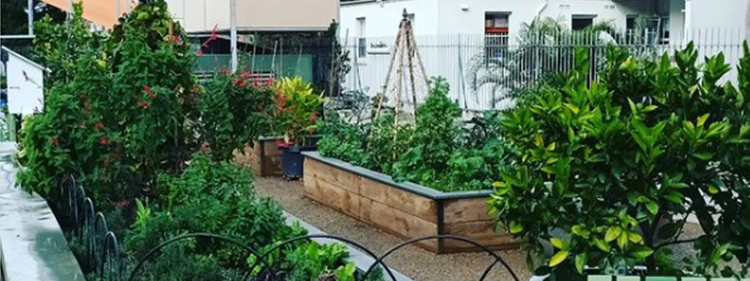
Covering 250 square metres of land, the Kings Cross Community Garden is an inspiring example of areas being repurposed and utilised for greater community benefit. Formerly an abandoned car park, this garden is now home to over 60 different types of plants. These plants include herbs, seasonal vegetables, fruit trees, and edible and ornamental plants. Edible flowers are delightful ingredients to include in your food. They can be used in a variety of ways as a garnish or key part of a dish. Check out this great article to learn more about ways that you can incorporate edible flowers into your dishes.
Organic gardening is at the centre of this community garden’s growing practices. The site is open to the public at all times, with everyone in the neighbourhood welcomed to use the herb bed. Members, though, have the extra advantage of sharing all of the garden produce. Members also have access to a number of special items that aren’t available in the shops.
Membership is $40 per year. Special considerations can be made for people who would like to become members but are a bit strapped for funds. You can send an email to [email protected], and the garden committee will consider a reduction or exemption from the membership fee.
Gardening times: 9am on Saturdays or 3pm on Sundays (although each of the 4 garden groups has its own times)
Address: Lawrence Hargrave Reserve 9a Elizabeth Bay NSW 2011
Contact: [email protected] or https://www.kingscrossgarden.org/
For more information, visit: https://communitygarden.org.au/listing/kings-cross-community-garden/
The East Albury Community Project Garden
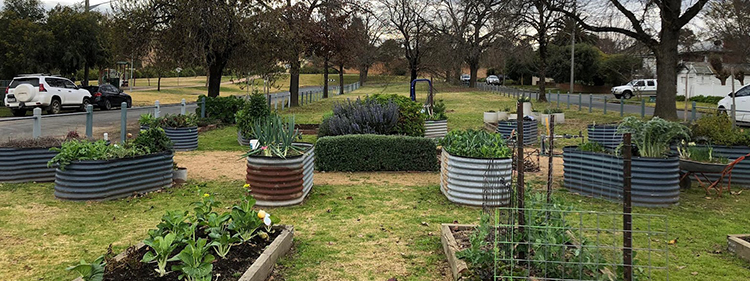
Affectionately known as Teacup Garden, the East Albury Community Project Garden is a thriving green space filled with a large variety of vegetables. This garden has potatoes, parsnips, spring onions, baby carrots, pumpkin, and capsicums. You may also find a few pollinators buzzing around the purple rosemary and mint flowers.
Overseen by a warm and welcoming group of gardeners with a can-do attitude, Teacup Garden was initiated in 2016. It has continued to grow from strength to strength. Produce from the garden is typically shared among the gardeners. They occasionally choose to pickle them, prepare them in a lovely home-cooked meal, or sell them at the Albury Wodonga Farmers Market.
All residents of Old East Albury are invited to get involved. Suggestions on what to plant in the new season are always welcome. To join, all you have to do is sign the Albury City Council waiver form, and you’re ready to go.
Gardening times: 10am on the last Sunday of every month
Address: 605 Broad St East Albury NSW 2640
Contact: [email protected] or https://www.facebook.com/teacupgardeners
For more information, visit: https://communitygarden.org.au/listing/the-east-albury-community-project-garden/
Discovery Point Communal Garden
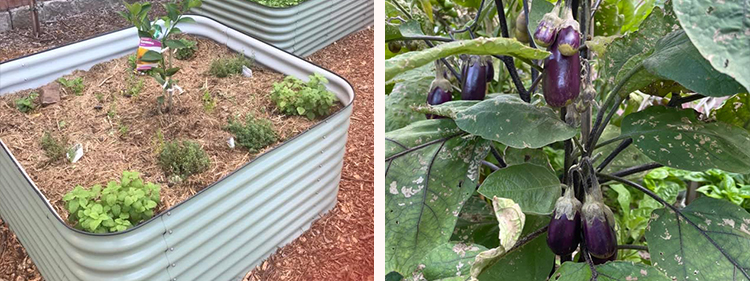
If you live along Princes Highway in Wolli Creek and would like to try your hand at growing your own fruits, herbs, and vegetables, pay a visit to the Discovery Point Communal Garden. The garden utilises water-wicking beds to keep plants quenched and happy throughout the growing season. They are mindful of conserving water and maintaining healthy soil.
Officially opened in 2019, the Discovery Point Communal Garden is open to all residents living in the Discovery Point apartments and the surrounding area. But paying members are able to access a compost bin. The garden’s location next to the historic Tempe House also gives residents a chance to get out of the surrounding high-rise apartments. This is their time to connect with the soil and plant the seeds that will grow a new community network.
Gardening times: Join the Facebook group for up-to-date information on gardening times https://www.facebook.com/groups/DiscoveryPointCommunalGarden/
Address: 1 Princes Hwy, near Tempe House, Wolli Creek NSW 2205
Contact: https://www.facebook.com/groups/DiscoveryPointCommunalGarden/
For more information, visit: https://communitygarden.org.au/listing/discovery-point-commnal-garden/
Newtown Station Kitchen Garden
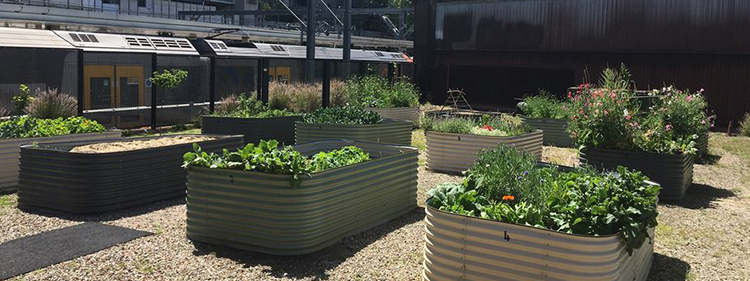
Tucked away inside the historic Newtown railway station on King Street, the location of the Newtown Station Kitchen Garden evokes a tiny sense of the Harry Potter books. It was set up in 2019/2020. Its members grow fresh herbs and vegetables that are delivered to non-profit food cooperatives and other welfare organisations.
Organic and sustainable gardening is at the core of the practices at the Newtown Station Kitchen Garden. Activities such as composting, mulching, companion planting, and worm farming are regularly undertaken. The garden also uses wicking beds to keep its plants well-hydrated while conserving water use.
Gardening times: 9:30am-12:30pm on Wednesdays, and 9:30am-12:30pm on Sundays.
Address: Newtown Railway Station, King St Newtown NSW 2042
Contact: Hanna North (0427030448 or via Facebook Messenger) or visit https://www.facebook.com/groups/5003004146437631/
For more information, visit: https://communitygarden.org.au/listing/newtown-station-kitchen-garden/
Millers Point Community Garden
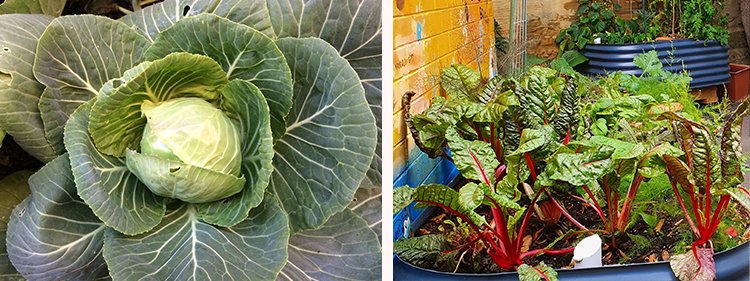
Flourishing and thriving since 2017, the Millers Point Community Garden is regularly bursting with bountiful herbs and vegetables that include cucumbers, capsicum, lettuce, broccoli, rocket, eggplants, and peas as well as mint, chives, parsley, and fennel.
The garden is run by an active and vibrant group of volunteers who grow everything organically and compost all kitchen and garden waste in a worm tower. They also use a water-wicking system for their garden beds to ensure sustainability. Socialising is also a key part of this gardening group’s goals and so they organise an annual Spring barbecue where produce from the garden is also enjoyed.
Gardening times: Email to confirm
Address: 17 Argyle Pl Millers Point NSW 2000
Contact: [email protected] or https://www.facebook.com/Millers-Point-Community-Garden-129839227709428/
For more information, visit: https://communitygarden.org.au/listing/millers-point-community-garden/
Henley Green Community Garden
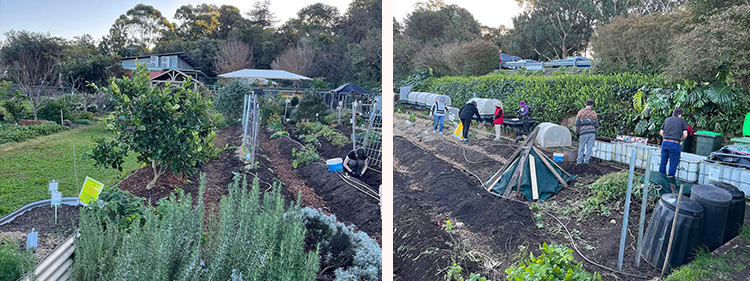
Did you know that there was such a thing as purple cauliflower? That is one of the many delightful vegetables that you will come across at the dynamic Henley Green Community Garden. Occupying half of an unused bowling green, the members of this community garden have grown at least five different types of potatoes plus an abundant variety of vegetables, herbs, and fruits, including strawberries, basil, chives, zucchini, beetroots, okra, and artichokes.
Careful about the quality of inputs they put into their produce, the community garden members make their compost using the 18-day method recommended by the Head of the Permaculture Research Institute of Australia. Members share in the harvest and every three months they organise the Henley Green Growers and Artisans Market where produce from the garden, along with crafts, food, and other items, are sold.
Membership costs around $60 per year and both experienced and beginner gardeners are welcome.
Gardening times: 9am-1am on Fridays and 3pm-5pm on Sundays
Address: 2A Crown St Henley 2111
Contact: [email protected] or https://www.facebook.com/HenleyGreenCommunityGarden/
For more information, visit: https://communitygarden.org.au/listing/millers-point-community-garden/
Baringa Bush Community Garden
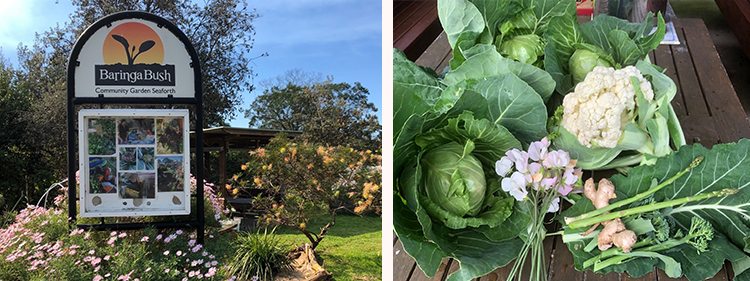
Designed to provide ample access to gardeners of all ages and mobility, the Baringa Bush Community Garden is a beacon of inclusion in the North Sydney suburb of Seaforth. It has over 26 member households who regularly pitch in to grow a wide variety of organic herbs, vegetables, and ornamental flowers and members regularly organise information-sharing sessions for the public about organic gardening.
Opened in 2013, the Baringa Bush Community Garden has at least 16 vegetable beds and holds an annual Spring Gala where produce, jams, seedlings, and plants from the garden are sold. Produce is shared with all members who are active in maintaining the garden and annual membership is $25 for individuals or $50 for couples or families.
Gardening times: Every 3rd Sunday of the month
Address: 61 Baranbali Ave Seaforth NSW 2092
Contact: [email protected]
For more information, visit: https://communitygarden.org.au/listing/baringa-bush-community-garden/
Rose Bay Community Garden
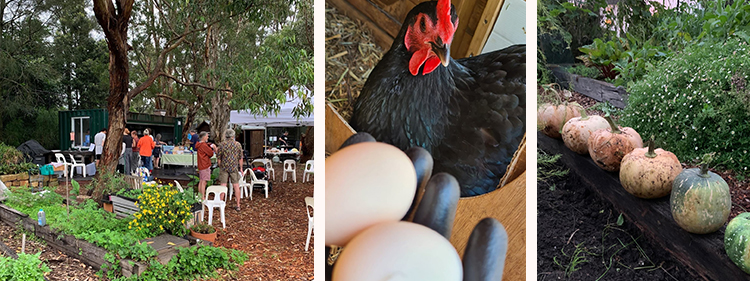
The 1,200 square metre site of the Rose Bay Community Garden buzzes with all kinds of life from chickens and native bees, to frogs and butterflies in their own beautiful flower garden. A water tank installed to capture rainwater runoff takes care of all the animals’ watering needs as well as that of the seedling area.
A host of fruits, vegetables, herbs, and flowers, which are shared among members, are grown on the site and there’s a CarbonCycle composter that regularly provides nutrient-rich soil. Members are allowed to use the garden at any time, with membership costing $50 for individuals, $80 for a family, and plot fees are $100. To become eligible for membership, applicants are also required to attend at least 3 workshops and 3 working bees.
Gardening times: 3rd Sunday of each month
Address: end Manion Ave Rose Bay NSW 2029
Contact: [email protected]
For more information, visit: https://communitygarden.org.au/listing/rose-bay-community-garden/
Addison Road Community Garden
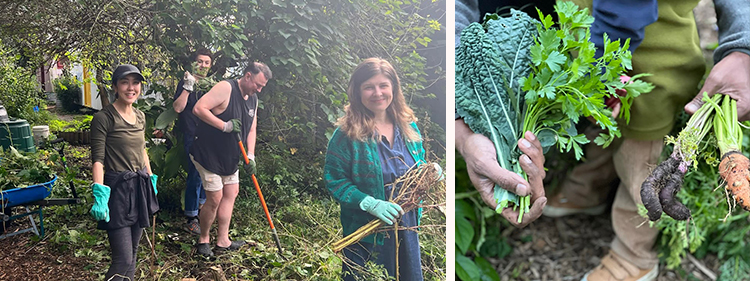
Only 7 km to the southwest of the Sydney CBD is the Addison Road Community Garden, also known as ARCGarden, which has close ties to the wider community and regularly cooks lunch for financially and socially disadvantaged people in the neighbourhood from produce harvested from the garden. Welfare organisations and passersby also have free access to the un-gated garden.
The garden has two 400-litre compost bins that help to keep the soil healthy and nutritious. In addition to grapes, bananas, onions, carrots, and turmeric, members also grow some more unconventional plants, such as sugarcane, passion fruit, and sweet potato. Every year in May, the garden hosts an annual open day where members sell jams, preserves, and pickles made from the garden’s produce to the public.
Gardening times: 11am-1pm every third Sunday of the month
Address: 142 Addison Road Marrickville NSW 2204
Contact: [email protected]
For more information, visit: https://communitygarden.org.au/listing/addison-road-community-garden/
Lennox Community Garden
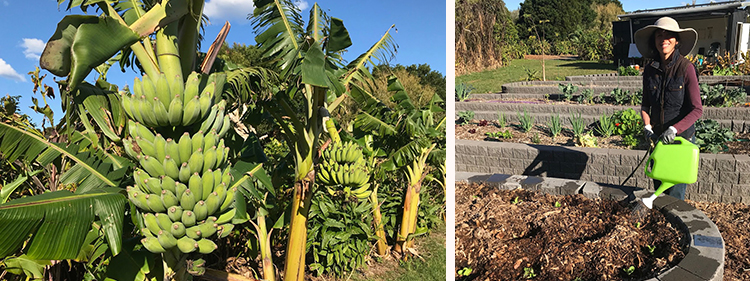
Founded in 2015, the Lennox Community Gardens officially broke ground on their half an acre plot in 2019 after finally securing a lease agreement. It is home to a variety of well-known fruit trees, including blue java bananas, sugarcane, passion fruit, and orange sherbet mangoes, and some not so well-known, such as rollinias, tromboncino, canistels, sapotes, and chempejack.
Community-centred in philosophy and practice, the garden is open to all community members at all times and gardeners usually leave any surplus produce on a table in front of the shed every Thursday and Sunday after the working bees. There is also a specific raised bed area just for children to encourage their interest and enjoyment in gardening.
Membership costs $25 for adults and $5 for children (under 18 years old) per year. In addition to sharing in the harvest, members also enjoy a variety of other benefits including free books from the resource library, free gloves and hat, access to workshops at a discounted price, and free mulch and discounted compost.
Gardening times: From 9am on Thursdays and from 2pm (AEST) on Sundays
Address: Ocean Breeze Reserve Lennox Head NSW 2478
Contact: 0410 174 050 or [email protected]
For more information, visit: https://communitygarden.org.au/listing/lennox-community-gardens/
Ashbury Community Garden
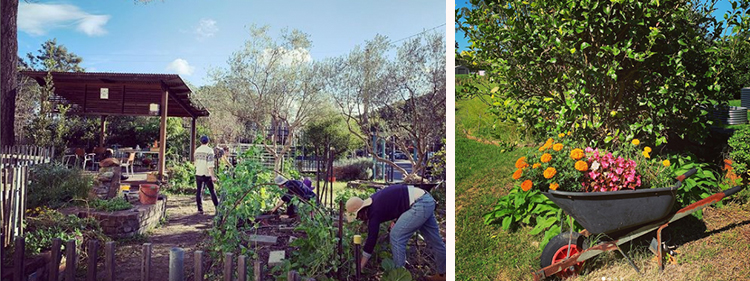
Featuring a flock of chickens, a hive of stingless bees, and a wide collection of organically-grown fruits and vegetables, the Ashbury Community Garden has been benefiting locals in the surrounding area since it was established in 2010. Sustainability is at the core of the garden’s activities, with a rainwater system, recycling programs, and composting.
Based on the grounds of the Ashbury Public School, the community garden has dedicated programs and activities for children that teach them about growing food, sustainability, and looking after chickens and native bees. Australia actually has over 1,700 native bees that contribute to the country’s amazing biodiversity. The garden also houses an outdoor classroom where children get to cook food with ingredients sourced from the garden.
Gardening times: Once a month on alternate Saturday or Sunday mornings
Address: Ettrick Street Ashbury NSW 2193
Contact: 02 9798 4509 or [email protected]
For more information, visit: https://communitygarden.org.au/listing/ashbury-community-gardens/
Paddington Community Garden
Formerly an empty quarry and rubbish tip, Paddington Community Garden currently has almost 40 thriving plots and 65 gardeners happily planting, harvesting, and maintaining the garden.
Committed to conservation and sustainability, the site has two large tanks for collecting rainwater and a pond to capture stormwater. In addition to installing a minimum of one compost bin at each plot, the garden also has in place a solar panel system for pumping water around the site.
Some of the wide range of vegetables, fruits, and herbs grown in the garden include beetroots, eggplants, lettuce, cherry tomatoes, broccoli, basil, rosemary, ginger, bananas, and pawpaw. Membership costs $50 per year and members are required to put in at least 1 hour per week on the garden’s communal tasks.
Gardening times: From 10:30am on Wednesdays and from 2:30pm on Sundays
Address: Trumper Park end of Quarry St Paddington NSW 2021
Contact: [email protected]
For more information, visit: https://communitygarden.org.au/listing/paddington-community-garden/
Closing
Community gardens are excellent places to increase your access to fresh and organic foods, engage in a fair bit of physical activity, and enhance your mental health. And if you would like to learn more about organic gardening, check out this in-depth guide by Flowers Across Sydney that covers everything from how to plan your garden and what to grow to creating organic compost and fertiliser and implementing organic pest control.
Flowers Across Sydney’s blog is a great resource where you can find lots of helpful articles about gardening, flowers, and plants. They also offer same-day delivery of fresh flowers for pretty much any occasion as well as a wide variety of gifts, such as chocolates, wines, and cards, to include with your flower deliveries. Check out Flowers Across Sydney today.

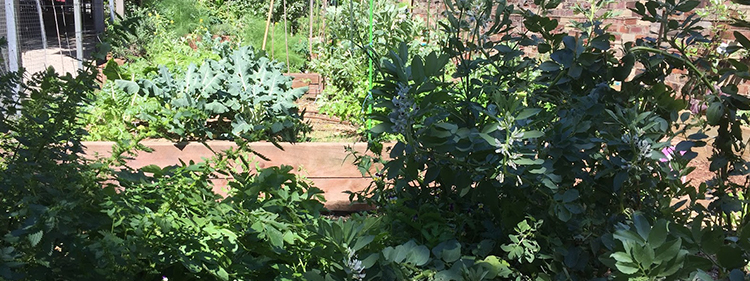

No Comments